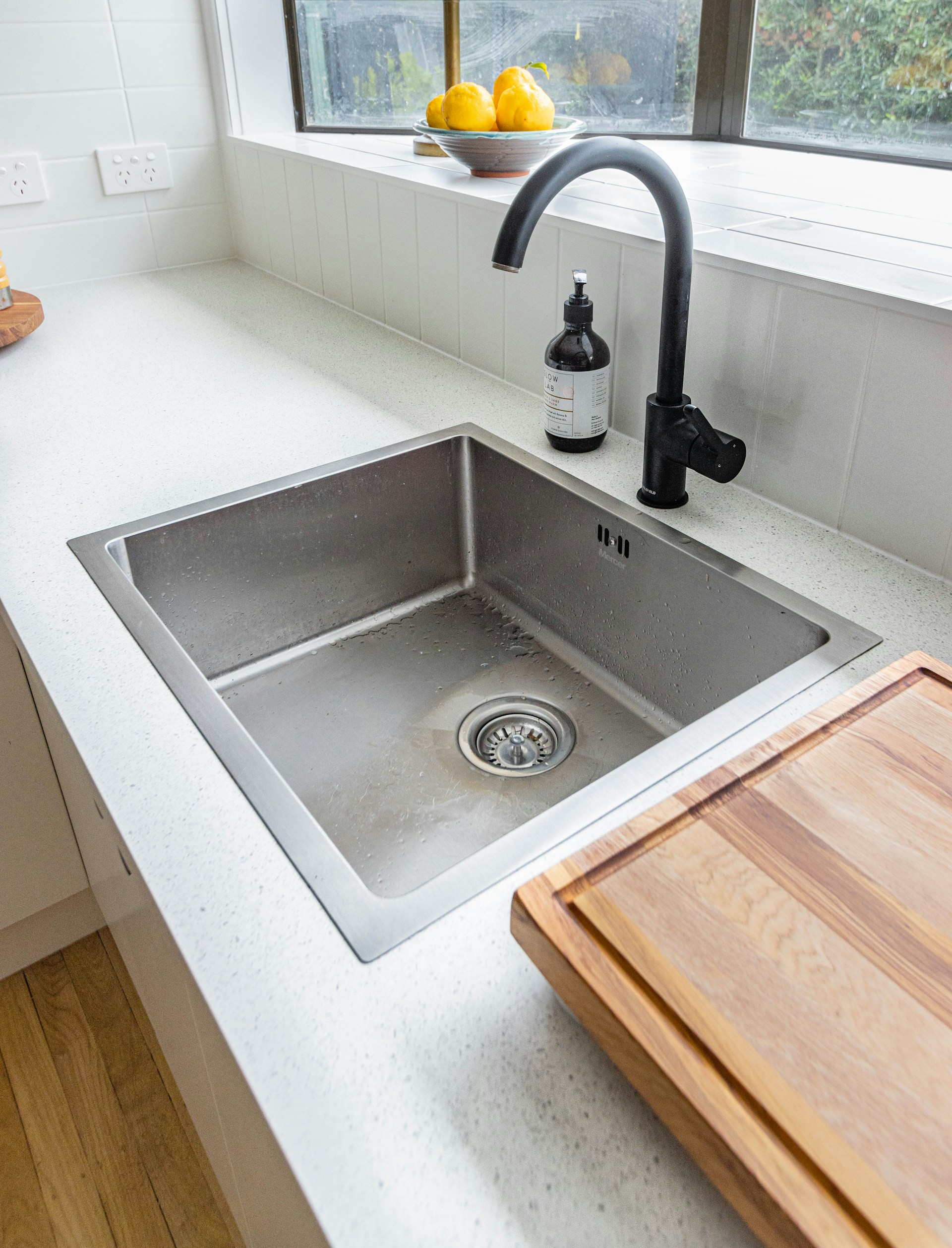-

email us
management@plumbingdoctornj.com
-

call us now
908-873-6686
Blog

09 May. 2024
The Right Way to Clean Your Garbage Disposal
Your garbage disposal is a handy appliance for you to have, as it grinds up food for easy disposal and prevents your pipes from clogging. However, for it to function correctly, you must care for it, as this keeps unpleasant odors and residue at bay. One way you can care for your garbage disposal is to clean it thoroughly. If you are unsure how to properly clean your garbage disposal, follow the below steps.
Gather Essential Materials
Before you begin cleaning your garbage disposal, gather the necessary materials. You will need white vinegar, baking soda, dish soap, ice cubes, and citrus peels (like lemon or orange) for a natural and effective cleaning solution.
Steps for Cleaning
Start by turning off the power to the garbage disposal, as this will ensure that you are safe. Next, pour a cup of ice cubes down the disposal to help dislodge any debris stuck to the blades. Follow this with a handful of citrus peels to provide freshness. Once you have put the ice and the peels down into the garbage disposal, turn on the power again. Then, let it run until you grind everything.
Using Natural Cleaning Solutions
To deep clean and deodorize your garbage disposal, create a mixture of white vinegar and baking soda. Pour half a cup of baking soda down the disposal, and then follow that by a cup of white vinegar. Let the mixture fizz and work its magic for 30 minutes before rinsing with hot water.
Scrubbing Away Residue
For stubborn residue, use a scrub brush or an old toothbrush to gently scrub the inside of the disposal. Be sure to reach all areas, including the rubber splash guard and the underside of the rubber flaps.
Maintain It Regularly
Once you thoroughly clean your garbage disposal, you must maintain it regularly. Once a week, run citrus peels through it to maintain freshness. You can also freeze vinegar into ice cubes and grind them up to keep the blades clean and sharp. Avoid putting fibrous or starchy foods, like potato peels or celery, down the disposal to prevent clogs. You should also schedule annual garbage disposal maintenance, which will involve a professional plumber cleaning and inspecting the unit thoroughly.
For help maintaining your garbage disposal, call on the Plumbing Doctor, LLC. When working with the Plumbing Doctor, LLC, you will receive nothing short of excellent service. The goal is to keep your plumbing in top shape and make your home a safe place. We believe in fair pricing for even the most complicated jobs, and your customer satisfaction is our priority.

09 May. 2024
Why Does My Tap Water Look Rusty?
While tap water is ordinarily clear, it can sometimes have a rust color when coming out of your faucet. Understandably, this can cause you to feel concerned, as you wonder about the safety of consuming such water. There are several reasons why your water can look rusty and understanding them will help you pinpoint and solve the problem.
Natural Minerals and Sediments
One reason your tap water may appear rusty is the presence of natural minerals and sediments in the water supply. Over time, minerals like iron and manganese can build up in the pipes. This is especially true in areas where there is older infrastructure.
Corrosion in Pipes
Another common cause of rusty-looking tap water is corrosion in the pipes. When metal pipes corrode, they release rust particles into the water. These particles give the water a brownish or reddish hue. Corrosion can occur due to age, low pH levels or exposure to chemicals.
Disturbances in Water Mains
Sometimes, disturbances in water mains can also lead to rusty-colored tap water. Construction work, repairs or sudden changes in water flow can stir up sediments in the pipes, and this can cause temporary discoloration.
Seasonal Changes
In some cases, seasonal changes can affect water quality. During periods of heavy rainfall or significant amounts of melting ice and snow, runoff can carry soil and sediment into reservoirs and water treatment plants. This can lead to your water appearing discolored.
Water Treatment Processes
While water treatment plants work to remove impurities from tap water, certain treatment processes can cause discoloration. For example, the addition of chlorine or other disinfectants can react with organic matter in the water, and this will result in rusty or brown-colored water.
Old Plumbing Fixtures
If your home has old plumbing fixtures or pipes made of galvanized iron, they may contribute to this discoloration. As these fixtures degrade over time, they can release rust particles into the water. This is especially true if they haven’t been properly maintained.
Steps to Address Rusty Tap Water
If you notice that your water has a rusty appearance, there are steps you can take to address the issue. Let the water run for a few minutes to flush out any sediment or rust particles. If the problem persists, consider installing a water filtration system or contacting a professional plumber for assistance.
While rusty tap water may be unappealing, it is often not harmful to consume. However, if you have concerns about water quality or persistent discoloration, it is essential to take steps to address the issue. The first step is to call Plumbing Doctor, LLC. We serve clients in Somerset, NJ and the surrounding areas, and we look forward to helping you address your plumbing issues to make your water clear again.
COVERAGE AREA:
Central New Jersey
EMAIL US:
contact@plumbingdoctornj.com
24/7 EMERGENCY CALL
908-873-6686
